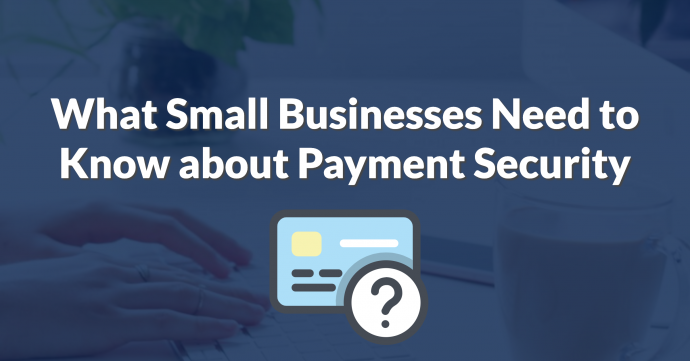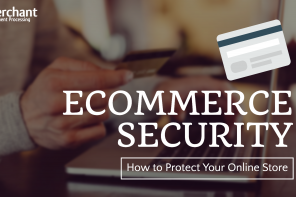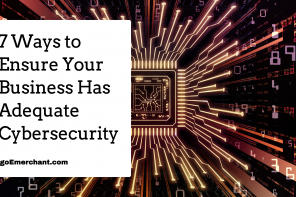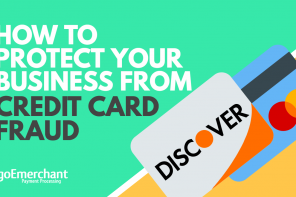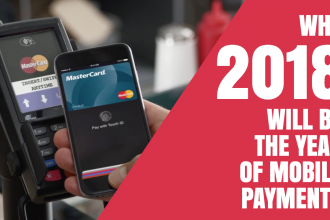Payment fraud is a rapidly-evolving problem plaguing businesses of all sizes. For small businesses, not protecting your payments systems can have an impact on your growth and customer relationships.
Payment security is the backbone of any business. Whether you sell your products in a physical storefront or rely entirely on your e-commerce site, protecting your payments starts with finding the right processing partner. The right partner can set you on the path to ensuring you have the necessary security protocols to fully protect your business and your customers.
Protecting payment data is a critical component of running a business. But there are important steps you need to follow to achieving the level of payment security necessary to run a successful business. To help you understand what steps need to be taken, we’ve broken down answers to common payment security questions.
How Can I Secure My Payments Data?
Industry data indicates that fraudulent transactions rose roughly 30 percent in a year’s time. Fraudsters are prone to target small businesses since they typically don’t invest in the same sophisticated payments platforms as larger businesses. Small businesses can avoid this pitfall by working with a boutique payments processing partner that can provide you the big business protection without the big price tag.
Securing your payment data means investing in solutions that follow industry-leading security standards, such as PCI compliance, encryption, tokenization and EMV. By investing in the right payments processing partner, your business can achieve the benefits that allows your customers to transact in person and online without putting their payment data at risk.
Does PCI Compliance Really Matter?
PCI compliance is an important part of payments security. To start, the following PCI compliance isn’t optional. For businesses that accept payment online, PCI compliance must be followed. PCI Compliance was created by the major payment card brands formed the Payment Card Industry Security Standards Council (PCI SSC) in response to a growing number of data security breaches. PCI Compliance proactively protects your business by preventing credit card fraud from occurring.
Adhering to PCI standards are equally as important as maintaining a secure payment processing environment. Letting a payments partner handle your PCI needs will ensure your business is consistently following the necessary and evolving requirements. PCI compliance is one aspect in the highly complex payment processing ecosystem that helps businesses protect their profits and their customers.
What is End-to-End Encryption?
Encryption protects sensitive data by making the data unreadable to those without a secret decryption key. Data encryption is the first step in protecting your cardholders’ information. Encryption has laid the groundwork for today’s tokenization methods that have been viewed as a more cost-effective and more permanent method to protecting cardholders’ credentials. Small businesses must rely on payment processing providers that focus on delivering E2E encryption across their entire payment platforms.
What is Tokenization?
Tokenization is a highly-secure method of protecting payment credentials. Tokenization involves substituting the credit card/account numbers with a one-time number known as a token that has no value or connection to a person or their account. The customer’s 16 digit primary account number (PAN) is replaced with a custom, randomly-generated alphanumeric ID. Because this transaction eliminates the link to sensitive data, tokens are used in credit card processing to reduce exposure to breaches.
For small businesses, tokenization protects bank account numbers and credit card numbers in a secure, virtual vault that can be transmitted across wireless networks without adding unnecessary risk. Small businesses should work with a payments processing partner that can provide a secure payment gateway to store sensitive data in order to generate the random token.
Do I Need to Accept EMV?
Small businesses must accept payment methods associated with top security measures. The first step in that is ensuring you’re working with an EMV-certified payment processing partner. As the global standard for credit and debit card payments, EMV creates a one-time use code (tokenization) for each transaction. The added protection comes with the tiny chip embedded in the card, encrypting every transaction. This provides an increased ability to securely transact, authenticate the card and the cardholder — all of which are directly correlated to fraud.
Beyond the liability requirements, EMV credit card processing terminals provide better security, more payment options to your customers, faster checkout and the ability to know that your business is up-to-date with the latest industry requirements.
